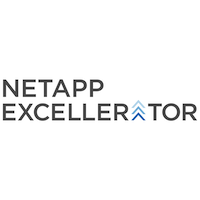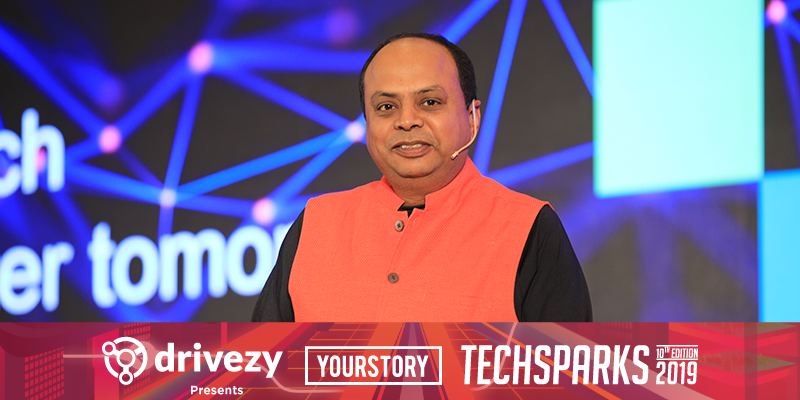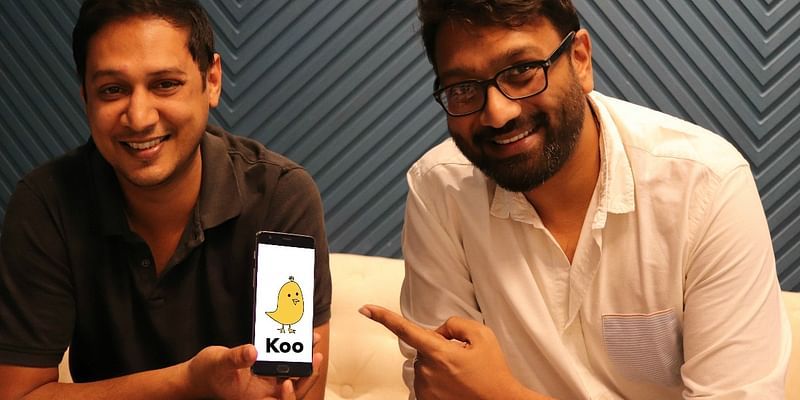
NetApp Excellerator
View Brand PublisherAI can solve problems of healthcare access, improve outcomes in remote areas: Deepak Visweswariah, Senior VP and MD, NetApp
“Imagine this: if you had to undergo a surgery but the surgeon was not in the room; in fact not even present in the building. Instead, you have a robot by your side who would perform the surgery. How many of you would be comfortable with this?”
This opening question by Deepak Visweswariah, Senior VP and MD, NetApp, set the tone for an informative keynote address on ‘AI in Healthtech: Shaping a Better Tomorrow’ during TechSparks ‘19 in Bengaluru.
Unsurprisingly, most audience members expressed reluctance to go ahead in the scenario suggested by Deepak. However, he went on to say that this could soon become reality.
Quoting a recent report from Accenture, Deepak said that by 2026, $20 billion worth of savings could be achieved due to applications driven by AI. He also said the projected worth of just the AI-driven healthcare market would be close to 7 billion dollars in the next few years.
The Asia Pacific region, which housed half the world’s population or 3.5 billion people, faced a number of challenges related to healthcare: an ageing population - as by the year 2050, 25 percent of the population in the region is expected to be over 60; an extremely low doctor-to-patient ratio with just 1.2 doctors for every 1,000 people; and rising lifestyle diseases.
New approach to solve age-old problems
“If you look at a country like India, three things stand out. One is affordability, in terms of determining how can people in rural areas afford healthcare and have access to it. While we talk about increasing mobile connections, not all of them have the same level of access or connectivity. In a country like India with 1.2 billion people, you cannot solve this problem traditionally. This is where newer technologies like AI and Deep Learning can actually make things more efficient and faster, and drive improvements in healthcare,” he said.
He went on to explain that AI also helps address 20 percent of use cases in healthcare that couldn’t be solved earlier thanks to the ability to be able to process data in a must faster fashion with the right technology.
Today AI is helping improve three major areas in healthcare: patient care, R&D and medical imaging. Elaborating on each of these, Deepak explained with examples of how healthtech companies using AI solutions were making a difference in the field.
In patient care, AI solutions helped bring about quick diagnosis by gathering data quickly and having it made available to the physician right away in a digital form, making the process more efficient. He mentioned, Cardiotrack, a company from one of the cohorts of NetApp Excellerator, which had come up with a portable device which could get ECGs even without a doctor being present there. “This is especially useful in remote areas as you can get the data to the doctor in no time. This ability to serve remote areas is one of the biggest problem in healthcare. AI helps expedite things if there is a problem,” he said.
He went on to talk about R&D another area that is hugely influenced by AI today. “Companies are trying to bring new drugs into the market. Historically it takes decades to do this successfully, but with AI this is much faster. '' Deepak mentioned WuXi NextCODE, a NetApp customer from Europe which had the largest platform for genome sequencing, that was working in this area.
Medical imaging is another prime target for AI and Deep Learning to be able to recognise things quicker and faster without needing a physician. Here he mentioned the work being done by Sigtuple, another NetApp Excellerator alumnus, which had come up with products that could easily read visual data from X-rays, blood and urine samples etc.
Building a robust and secure data pipeline for healthcare
Pronouncing that data is the rocket fuel of AI, Deepak elaborated on the work being done by NetApp in the industry. “We are working to bring a data pipeline architecture into reality. On the edge, you have devices that collect data. You move the required data into a core area such as a data centre where you process it, from aggregation, cleaning up, running and training models, running production workloads. Then you move that data to where your applications are: possibly public clouds. The idea is to build that kind of pipeline, separate it from the application layer and then run that model on that data,” he said.
Since today there are a number of applications running on the public cloud, there were significant performance latency requirements as well as the ability to protect and secure the data, and that’s what NetApp was working on providing.
He signed off right where he began the talk by posing a question to the audience. ‘Are robots the future of healthcare?’ “I believe there is a place for robots and I believe there is a significant space for humans to play in healthcare. We are significantly short of resources and we are unable to provide that healthcare to a significant section of the population. From a point of view of the efficiency that we could get it would fantastic to leverage such technologies and not worry about whether robots are going to take over,” he concluded.









![[Funding alert] Pratilipi raises $48M from Krafton Inc, Omidyar, and others](https://images.yourstory.com/cs/2/b87effd06a6611e9ad333f8a4777438f/Imagejaeg-1626257950083.jpg)

![[TechSparks 2020] Experts discuss key trends in edtech sector amid pandemic](https://images.yourstory.com/cs/2/b87effd06a6611e9ad333f8a4777438f/ElkodCU0AAaCYx-1604078237356.jpg)
